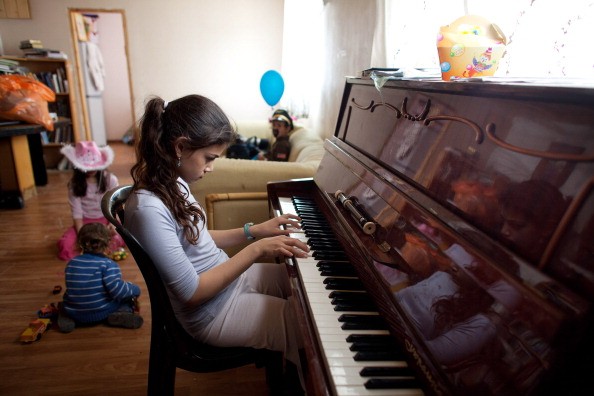
Learning a musical instrument is good for anyone, but for kids we already know that it can help them learn eye-hand coordination and give them a way to express themselves that can last a lifetime. But now a study has found that musical training can change the brain in ways that help a child focus their attention, diminish anxiety, and control their emotions.
These findings are based analysis of brain scans of 232 children who studied a musical instrument. The brain scans were examined to look at the thickness of the children's cortex, the outer layer of the brain, which thickens with age. Previous research had found that cortical thickening or thinning in specific areas happened with anxiety, depression, and attention problems. The goal of this study was to see if musical training affects cortical thickness.
Researchers at the University of Vermont and Harvard University found that music training altered the areas of the brain that deal with control and coordination of movement, and that there were changes in the areas of the brain that regulate behavior. Music training influenced thickness in parts of the cortex that relate to higher thinking, memory, control of attention, and with organizing and planning for the future. It also appears to be associated with thickening in areas that play a role in behavioral control and aspects of processing emotion.
The study examined brain scans of children tho were enrolled in the Magnetic Resonance Imaging Study of Normal Brain Development, a long-term research project on the brain run by the National Institutes of Health. The 232 children in this study had magnetic resonance imaging (MRI), intelligence tests, and behavioral testing on up to three visits that occurred every two years. They ranged in age from 6 to 18 years old and were known to be learning a musical instrument.
According to the authors of the study, it is the largest investigation of the association between the development of the brain and playing a musical instrument. The study was published in the Journal of the American Academy of Child & Adult Psychiatry.



